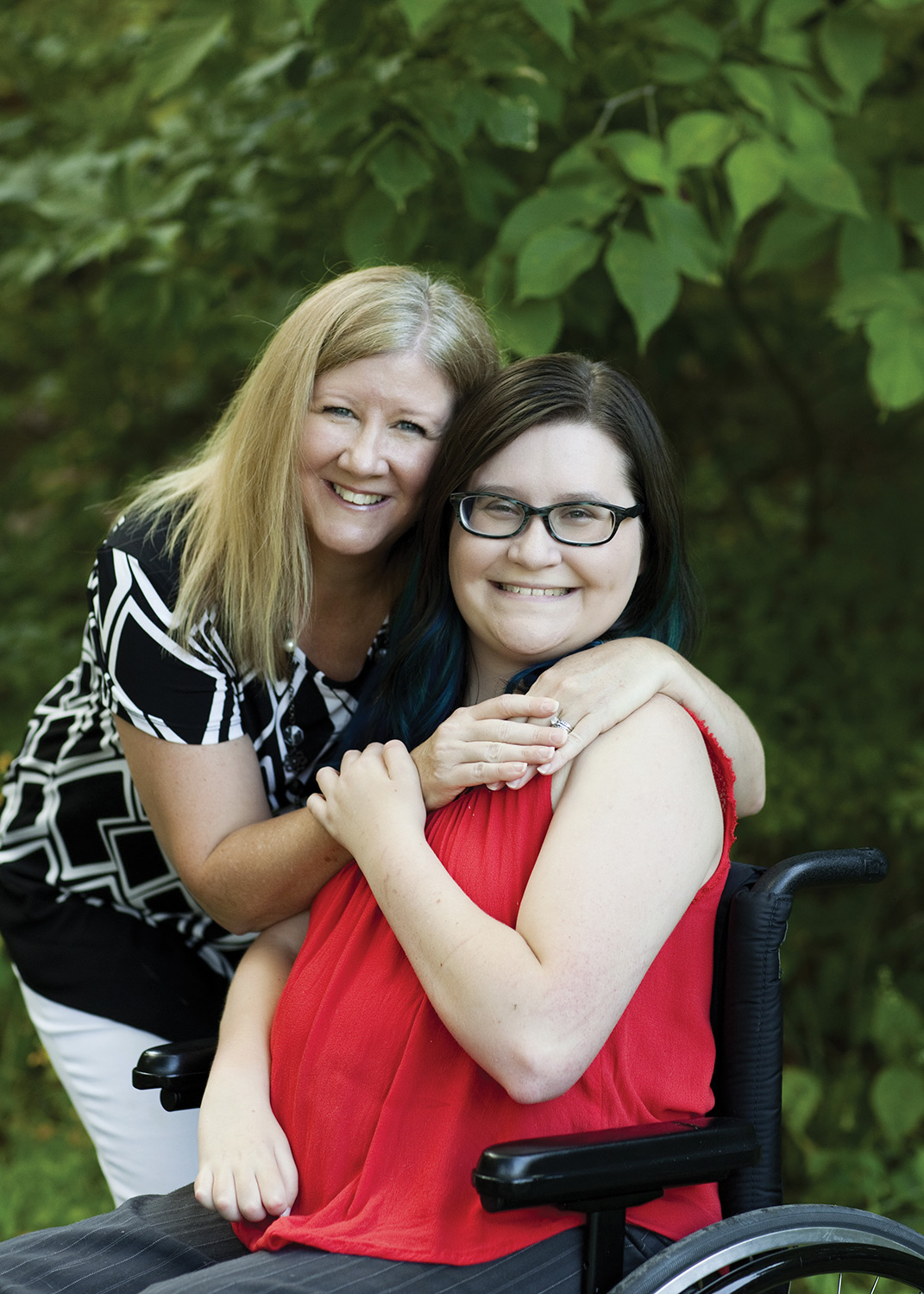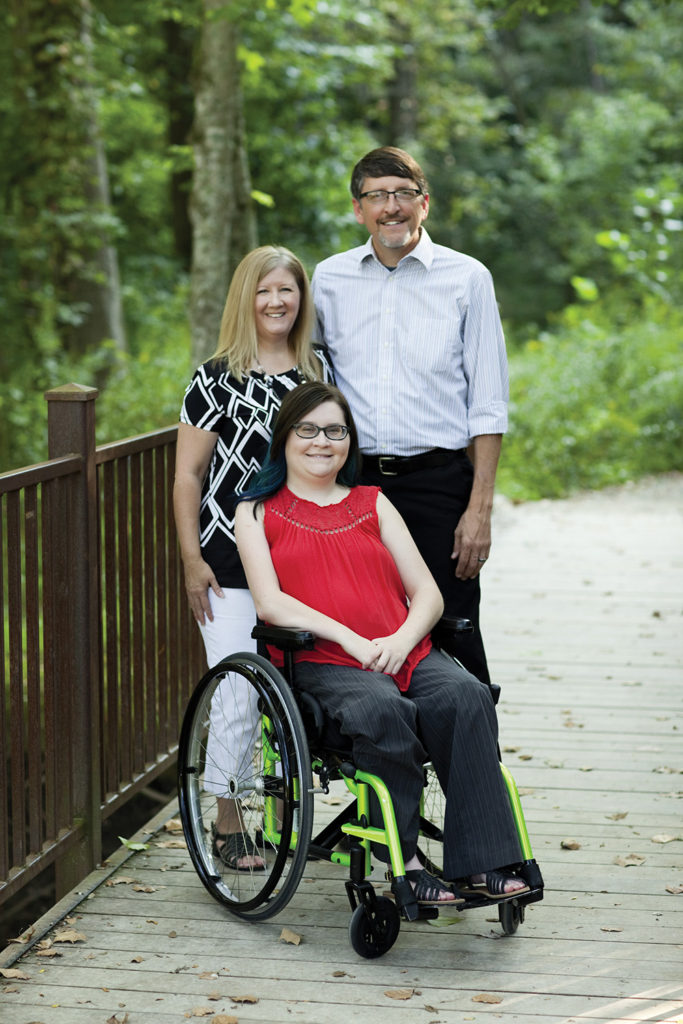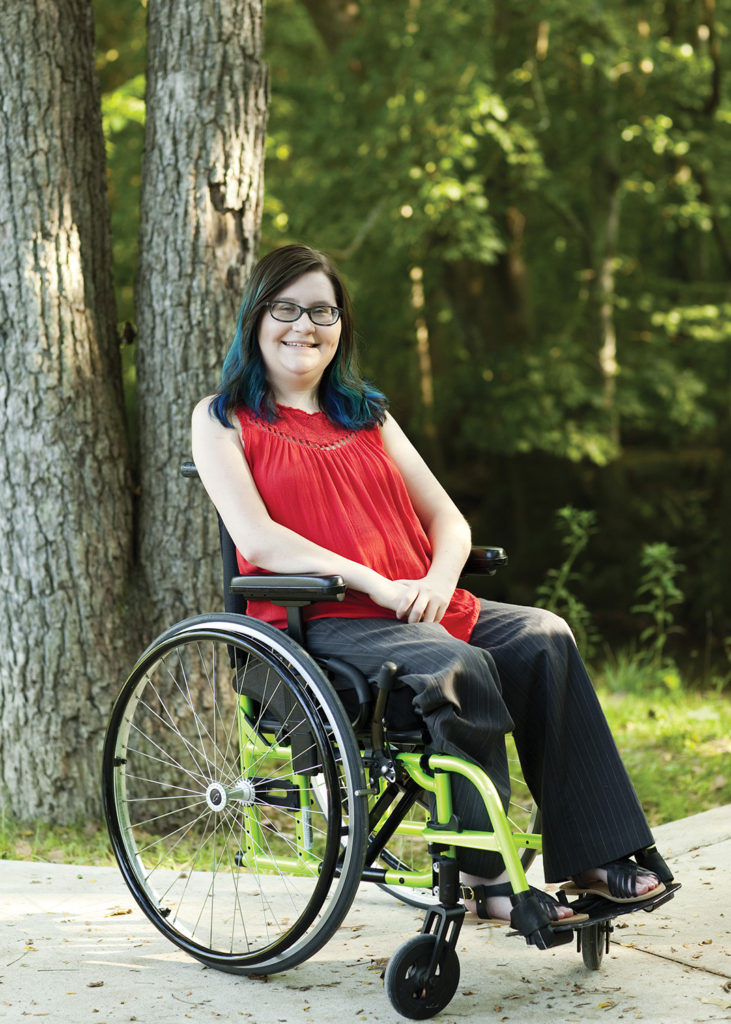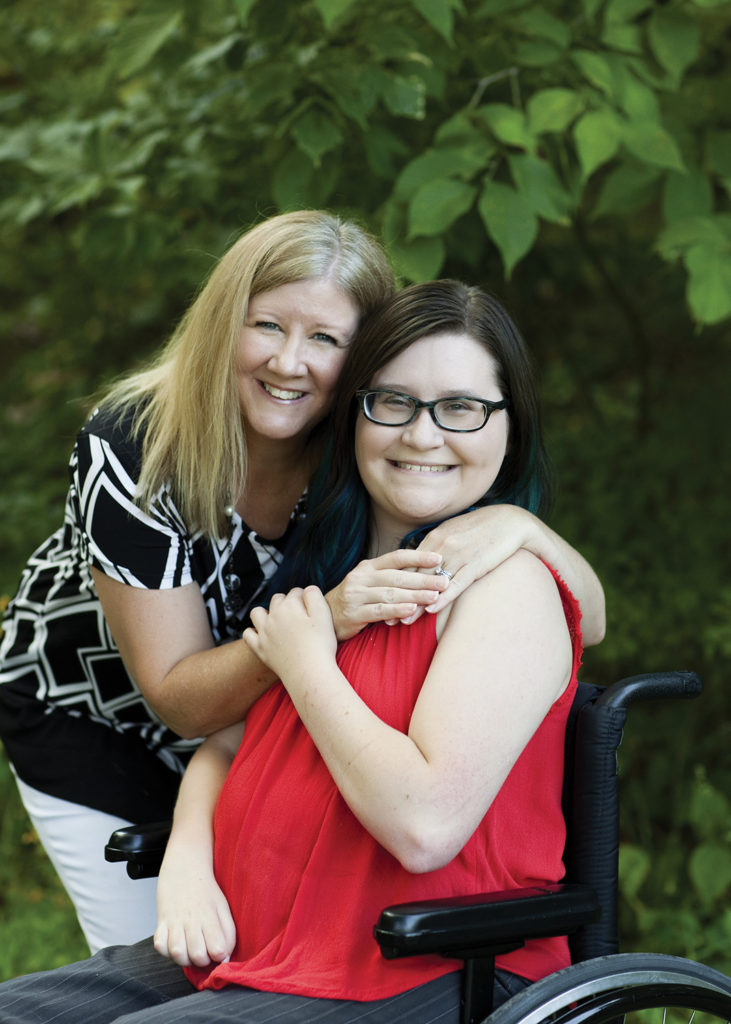Embracing Differences – Fostering Independence

by Beth Bramstedt
photos by Angelique Hunter
Jeff and Dana Sharland share their 16-year journey with daughter Katie’s spinal cord condition.

Dana Sharland sips a cup of coffee, curled up in a chair while her oldest daughter, Amy, feeds her daughter, Aster, nearby. Søren, the oldest grandchild, builds Legos at the table while Dana’s husband, Jeff, strolls in after attending a men’s Bible study.
Dana occasionally receives texts from their other daughter, Katie, who is struggling to reach her office because of a broken elevator. That presents a challenge for 25-year-old Katie, who has been confined to a wheelchair since the third grade.
Dana takes a deep breath as she recounts the events of March 2, 2000 that changed their family forever.
“Katie was attending Fairview Elementary and getting ready for a play when her arms went completely stiff,” Dana recalls. “They took her to the nurse’s office, and, within 20 minutes, she was paralyzed from the waist down.”
To this day, the doctors still don’t agree on Katie’s diagnosis: some believe she has an inflammation of the spinal cord called transverse myelitis; others believe she had a stroke.
Katie spent two weeks in the ICU before moving to Rusk Rehabilitation Center for six weeks. There, she was put in a wheelchair with her head strapped in. “She was just so glad to be mobile,” says Dana, “that she took off.”
The weeks at Rusk were spent in occupational and physical therapy, where Katie relearned everything, including how to hold her head up and how to use her left hand to eat. “The big fear after Katie came home was that it could happen again,” Dana explains.
“Whatever it was,” Jeff chimes in. “We were operating in unknown land. It was so complex. Her condition was so real, yet no one knew what it was.”
“Now they know that transverse myelitis only happens once,” Amy says. “But we didn’t know that then.”

The family had to overcome practical challenges in addition to Katie’s physical obstacles. Jeff had to buy an old, clunky van to move Katie home. Eventually, a family friend purchased and donated a nicer handicap-accessible minivan. Friends also helped tear down the Sharlands’ deck, add a ramp, install sliding glass doors, and widen the entrance to Katie’s bedroom. Later, friends again pitched in to install new hardwood floors.
While Katie’s mind continued to function normally, she needed constant physical help. At school someone carried her books, helped her navigate crowded hallways, and even write. At home, she required help transferring in and out of bed, bathing, getting dressed, preparing meals, and getting in and out of the car. There were seasons she was in and out of the hospital several times a month with kidney or urinary tract infections.
“It was an emotional crisis,” says Dana. “All we could do was respond in the moment.” Jeff and Dana admit that Amy and her younger brother, Nick, had to feel abandoned because they spent so much time on Katie. “Her situation drew us to a single focus for years,” says Jeff. Looking back, Jeff and Dana wish they had done more to create a balance in their family, including incorporating Nick and Amy in decisions. “Rather than pushing them away,” Jeff says, “we should have involved them and created a family unit.”
The Sharlands insisted that Katie live in the dorm while she attended MU, which Jeff calls “one of the best decisions we ever made” because of the independence it instilled in her.
With the financial help of Missouri Vocational Rehabilitation, Katie completed her degree in Personal Finance in 2014, and has since made significant strides in living on her own. In 2015, she secured a loan to buy a house, and the family modified it to fit her needs. While she still leans on family and a personal care assistant for many functions, she can get around on her own, cook for herself, and care for her cats.
Vocational Rehab also connected Katie to Job Point, which helped her create a resume, learn interview skills, and find a job opportunity processing medical claims for the VA.
Katie’s challenges have narrowed to everyday obstacles, like using the bus system. “Now, we deal with a lot of logistics,” Dana shares, “all the time, every day.”
What’s next for Katie?
Upcoming challenges include buying a car and having it modified so Katie can drive. “It’s just one more step toward independence,” Jeff says. Katie recently received her driver’s permit and has been taking lessons, researching adaptive cars, and saving her money.

“She gets stuck and doesn’t want to be a burden,” Dana adds. “If she could drive, it would remove obstacles for her social independence and change her world.”
The Sharlands will always be a busy, bustling family. Together, they’ve overcome huge obstacles — and they’ll certainly overcome things like a broken elevator.


